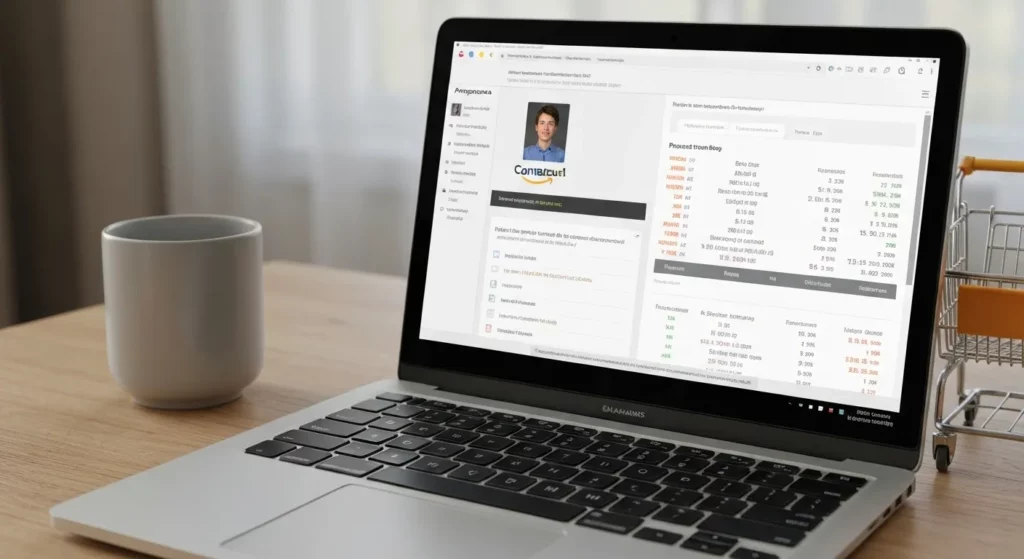It’s a common saying that free things are not valued properly, but this often misses the point. The truth is people don’t value things that inherently lack value, regardless of cost. The ‘free’ part, however, is almost always appreciated, especially when you come from a generation that has diligently paid its way through life. After decades of hard work and financial responsibility, reaching retirement is a significant milestone. It’s a time when finances, budgets, and priorities often shift dramatically. Therefore, the least you can receive and rightfully deserve in retirement is access to free stuff and significant discounts that can make a tangible difference in your quality of life.
The truly good thing about retirement is that seniors can benefit from a vast number of great deals, discounts, and completely free things, many of which they might not even know exist. These opportunities are not handouts; they are earned benefits designed to support you during your golden years. From auditing college classes to expand your knowledge, to enjoying a discounted dinner at your favorite restaurant, or exploring the breathtaking beauty of your favorite national park without an entrance fee, the possibilities are extensive. To help you navigate these valuable perks, here are 13 things that seniors can often get for free.

Free things for seniors:
-
Entry to National Parks
The United States boasts a stunning network of around 425 national parks, from the geysers of Yellowstone to the depths of the Grand Canyon, all managed by the National Park Service. While most of these natural treasures have entrance fees, there’s a fantastic program for older Americans. Luckily, U.S. citizens and permanent residents aged 62 and older can purchase a heavily discounted lifetime pass. This Senior Pass grants access to more than 2,000 federal recreation sites, including all national parks, for as long as you wish to visit (should they be open, of course).
This pass typically covers entrance fees for the pass holder and all passengers in a personal vehicle. At sites that charge per person, it covers the pass holder and up to three other adults. Therefore, if you enjoy taking invigorating walks, admiring majestic landscapes, or simply breathing in fresh air, this is an incredibly nice and affordable opportunity to satisfy your need for outdoor activities and exploration. It’s a passport to adventure that pays for itself after just a few visits. In some specific cases, you might even get in for free on designated fee-free days that many parks offer throughout the year.
-
Dental care
Comprehensive dental care is an absolutely critical component of overall health and well-being, a fact that becomes even more apparent as we get older. Proper oral hygiene can affect everything from nutrition to heart health. To add insult to injury, the majority of routine and major dental care costs—including extractions, dentures, root canals, and fillings—are not covered by Original Medicare. Given that these procedures don’t exactly come cheap, the financial burden can be substantial for those on a fixed income.
However, if you’re on a tight budget and in dire need of dental care, there is still hope. A remarkable organization, the Dental Lifeline Network, is comprised of a group of volunteer dentists, specialists, and laboratories who provide free, comprehensive, and often complex dental services to seniors with particular qualifying problems. Their Donated Dental Services (DDS) program is designed to help those who are elderly, have permanent disabilities, or are medically fragile. It’s essential to check them out and see if you fit any of the categories of people and services they provide for free, as it could be a life-changing resource.
-
Education and classes
Retirement is the perfect time to rekindle old passions or discover new ones, and many older adults who want to pursue academic interests can do so for free or for significantly lower fees at numerous local colleges and universities. Many states have laws that permit or require public institutions of higher learning to waive tuition for senior citizens. The specific classes available and the fee structures differ from state to state, so make sure you check resources like the AARP for a list of academic institutions that offer discounted or free educational options in your state.
The benefits of lifelong learning extend far beyond the knowledge gained; it’s a powerful way to keep your mind sharp, engage in cognitive challenges, and stay socially connected. Imagine being able to attend fascinating lectures on history, learn a new language, master computer skills, or take an art class without having to pay a dime in tuition? Many universities also host Osher Lifelong Learning Institutes (OLLIs), which are specifically designed to offer a rich array of non-credit courses and activities for adults aged 50 and over.
-
Tax preparation
Taxes don’t disappear in retirement, and for many, they can become even more complex with income from Social Security, pensions, and retirement account withdrawals. However, many retirees might not know that they can get all sorts of special tax deductions and credits. For instance, seniors aged 65 and older who do not itemize their deductions are entitled to a higher standard deduction compared to their younger counterparts, which can significantly lower their tax burden.
More than that, they can receive expert assistance to prepare for all these tax deductions and file their returns, completely free of charge. The AARP Foundation’s Tax-Aide program provides free tax help from IRS-certified volunteers. It is a program designed specifically for taxpayers aged 50 and older and those with low-to-moderate income, offering in-person or online support at thousands of locations nationwide, like libraries and senior centers.
Additionally, there’s also a program created by the IRS for older adults and other qualifying taxpayers, called Free File. This partnership between the IRS and several tax software companies allows eligible individuals to prepare and file their federal tax returns online using guided software, with no fee required. These services ensure you get every credit and deduction you’re entitled to without the stress or cost.
-
Coffee
Whether you just savor coffee for its marvelous aroma and the comforting ritual of a morning cup, or you rely on it to be able to function throughout the day, just know that you can often get your cup of Joe for free or at a discount. Many national coffee chains have robust loyalty programs. For instance, Peet’s Coffee Rewards — called Peetnik Rewards — allows senior customers and others to gain points with every purchase, which can then be traded for free beverages and food items. Similarly, Dunkin’ Rewards and Starbucks Rewards operate on a comparable points-based system, with Starbucks famously including a free beverage or food item for your birthday.
The enrollment in all of these rewards programs is completely free, so the choice is yours! Beyond these larger chains, don’t forget to check with your local, independent coffee shops. Many offer a straight senior discount, perhaps 10% off or a cheaper price on a small coffee. All it takes is a simple question to unlock some caffeinated savings.
Speaking of freebies, check out how to Fill Your Pantry for $0! Here Are 5 Genius Tips You Can’t Miss!
-
Restaurants
Apart from the rewards programs available at your favorite coffee shops, there are numerous restaurants that offer special deals, free items, or discounted meals for seniors, typically for those aged 55 or 60 and more. For instance, at casual dining spots like Applebee’s, IHOP, and Golden Corral, older adults can often benefit from a 10 or 15 percent discount on their bill. Many fast-food locations, including McDonald’s and Wendy’s, may offer a free or discounted senior drink with a purchase. It’s important to remember that these offers can vary by location, so it’s always a good idea to ask.
Furthermore, an AARP membership also comes with a wide array of deals and discounts for popular restaurants including the Bonefish Grill, Carraba’s Italian Grill, Denny’s, and Outback Steakhouse. While the membership itself has a small annual fee, the savings from just a few discounted meals can easily cover the cost. Why not enjoy your golden years by inserting a free or reduced-price dinner into your weekly schedule? It’s a simple way to stretch your budget while still enjoying a nice meal out.

-
Medicare Part A
If you’ve been in the workforce for at least 10 years and consistently contributed to Medicare through your payroll taxes, then it’s time you reap the benefits of that investment. Most older adults aged 65 and older are eligible for premium-free Medicare Part A (Hospital Insurance). This is a foundational part of your healthcare coverage in retirement and can save you from catastrophic hospital bills. It covers a range of essential services, including:
- Inpatient hospital care: This includes semi-private rooms, meals, general nursing care, and other hospital services and supplies.
- Care in a skilled nursing facility: This covers short-term care following a qualifying hospital stay, but it is not long-term custodial care.
- Hospice care: For individuals with a terminal illness, this provides care focused on comfort and quality of life.
- Home health care: Medically necessary part-time or intermittent skilled nursing care, physical therapy, etc., if you are homebound.
- Nursing home care: This is covered only if it’s skilled nursing care, similar to that provided in a skilled nursing facility.
To have a clear and detailed understanding of what Medicare Part A covers and what your potential out-of-pocket costs like deductibles might be, it is crucial to check the official Medicare website. With the help of the search bar and coverage tools on Medicare.gov, you can clearly identify all the covered items, tests, and services.
-
Medical appointments and wellness exams
Medicare was created with the fundamental goal of helping people receive necessary medical services without paying too much for them, or in many cases, not at all. A key focus of modern healthcare is prevention, and Medicare fully supports this. Many vital preventive services are available at no cost to you. Free Medicare services typically covered by Part B include:
- Annual wellness visits: A yearly appointment with your doctor to develop or update a personalized prevention plan.
- Flu shots: One free influenza vaccine per flu season.
- Various vaccines: Including pneumonia and Hepatitis B shots for those at risk.
- Various screenings: This includes critical screenings for cancer (like mammograms and colonoscopies), diabetes, depression, and cardiovascular disease.
In addition to these direct services, Medicare beneficiaries can benefit from prescription discount cards to pay less for medication and treatment. While not a part of Medicare itself, programs like GoodRx and SingleCare can be used to find coupons that often reduce the price of prescriptions below what you might pay through your insurance. This helps improve your health and, consequently, your overall quality of life by making necessary treatments more affordable.
-
Gym memberships
Going to the gym isn’t a habit reserved only for young people. On the contrary, as we age, it’s more important than ever to stay in shape, maintain mobility and balance, and maximize our health by being active. A great bonus is that many fitness centers provide substantial discounts or even entirely free memberships to seniors aged 65 and older, often provided as a benefit through their health insurance plan.
In addition, certain Medicare Advantage (Part C) and some Medigap plans offer a fitness benefit commonly known as SilverSneakers. This fantastic program allows older adults to use over 15,000 gym and fitness center locations all across the United States. It often includes access to all standard amenities plus special group exercise classes designed for seniors. Other similar programs, like Renew Active from UnitedHealthcare and Silver&Fit, offer comparable benefits. This means whether they’re at home or on a trip to another state, eligible seniors can hit the gym and stay active free of charge. Be sure to check your specific health plan to see if you have this valuable perk.
-
Phones and internet
In today’s world, a phone and internet connection are not luxuries; they are essential utilities for staying connected with family, accessing telehealth services, and managing finances. If you’re on a low or fixed income, then you should know that various government programs can help you out. Should you need a phone, internet service, or even assistance getting a computer, all you need to do is apply to one of these programs. If you qualify based on income or participation in other aid programs, you can get the desired item or service for free or at a steep discount.
If you are eligible for an assistance program, it might also include or be one of the following federal initiatives:
- Lifeline: A long-standing Federal Communications Commission (FCC) program that helps make communications services more affordable for low-income consumers by providing a monthly discount on phone or internet service.
- Affordable Connectivity Program (ACP): This program provides a discount on broadband service and a one-time discount for a connected device. It’s crucial to check the official government websites for the current status and availability of these programs, as funding and rules can change.
-
Public transit
Unfortunately, the natural process of aging can come with various mobility issues for some seniors. Whether it’s vision loss that makes night driving difficult, reduced muscle strength, or joint problems, operating a vehicle on your own might eventually become a challenging or impossible task. Maintaining independence is key, and public transportation can be a lifeline.
Luckily, many states and municipalities offer heavily discounted transport services, and some even provide completely free rides for their senior residents. For example, in Minneapolis, seniors aged 65 and older can get reduced-fare metro transit cards. In Pennsylvania, the state-sponsored Senior Free Ride Program allows seniors to use local fixed-route public transport for free at any time. Seniors in places like Chicago and New York City also have access to similar free or reduced-fare programs. All that is usually required is a senior citizen ID card or a Medicare card to hop on board!
In communities like Mississippi, the Coast Transit Authority provides essential transit services to help seniors get to vital destinations like doctor visits, grocery stores, or senior centers. Many areas also offer paratransit services for those with disabilities that prevent them from using the regular bus system.
-
Hearing aids
According to research from institutions like Johns Hopkins Medicine, hearing loss is incredibly common, affecting more than 27 million people in the United States over the age of 50. Unfortunately, a large percentage of those affected suffer in silence (literally), primarily due to the expensive costs of hearing aids. A single prescription hearing device can cost around $2,300, and a pair can easily exceed $4,000—an amount which can seriously affect anyone’s budget, let alone a retiree on a fixed income, especially since Original Medicare doesn’t cover them.
Thankfully, there are several avenues for assistance. To make sure you find complete information on discounted or free services related to hearing aids and hearing health, check out resources such as:
- The National Hearing Aid Project: This project, run by Hearing Charities of America, provides hearing aids to low-income individuals.
- Medicaid and the Veterans Administration: If you are eligible for Medicaid, it may cover hearing aids in your state. Eligible military veterans can often receive hearing aids and related services at no cost through the VA.
Additionally, community service organizations like the Lions Club and Sertoma are well-known for their local hearing aid assistance programs. It is always worth reaching out to a local chapter to see what help might be available.
Takeaway
As we are getting older and navigating life on a more fixed income, it’s not just sensible but essential that we make the most of all the deals, discounts, and free services provided by state, federal, or private institutions. These are earned benefits, designed to make your retirement more comfortable, healthier, and more enjoyable. Whether you need critical help finding an affordable hearing aid, professional assistance preparing your taxes correctly, or you just want to have a relaxing night out, there are countless available options to help you do so affordably.
The key is that you only need to look in the right place and be proactive in seeking them out. Create a checklist, search online for “senior discounts” in your area, and don’t ever hesitate to ask about a senior discount whenever you purchase something, whether at a pharmacy, movie theater, or local shop. You might find yourself pleasantly surprised by the savings you can unlock. Taking advantage of these opportunities is a smart way to manage your finances and fully enjoy the rewarding retirement you deserve.















3 Responses
The above was very informative.
Unfortunately, Medicare does not cover many things we need as we age. Makes no sense since for the most part people don’t get Medicare till we are 65 when we need the items they don’t cover. Prescriptions are the worst – very expensive & no help!
Thanks. I learned a couple of new things!!